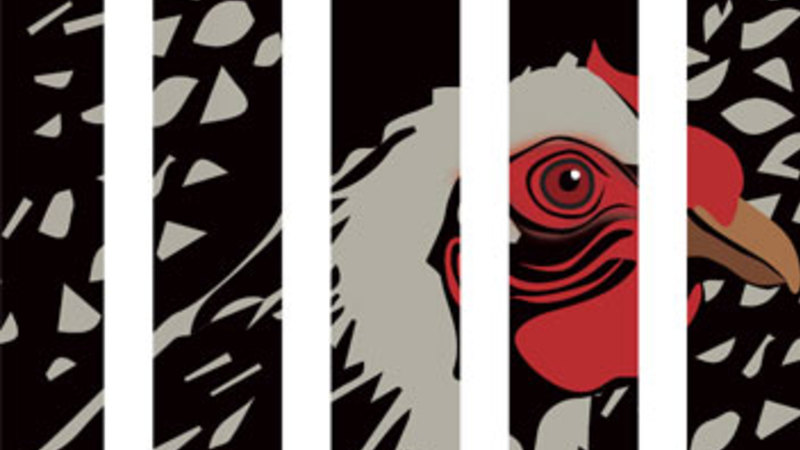Save articles for later
Add articles to your saved list and come back to them any time.
Western Australia is leading the race to be the first state to eliminate keeping hens in battery cages, after animal welfare campaigners challenged the states and territories to see who could be first to outlaw cage eggs.
Ministers from each of the remaining states all declined to commit to an earlier phase-out.
Polling conducted in 2021 shows that 77 per cent of Australians want the practice phased out because they believe it traps hens in inhumane conditions in tiny cages.
Battery hens.Credit: Simon Alekna
But last week Australia’s agriculture ministers agreed to wait another 13 years before mandating that battery hen farming be prohibited.
However, the agreement between agriculture ministers allows for individual states to move sooner to phase out cage farming and require farmers to increase the size of cages. They could do so as part of the implementation plans all states are required to submit to the Animal Welfare Task Group.
Jed Goodfellow from the Australian Alliance for Animals said while it was disappointing that the timeframe for ending cage farming was so far away there was also an opportunity for consumers and state governments to step up.
“State governments are now at liberty to negotiate with their respective industries to expedite their phase-out timeframes to demonstrate their commitment to animal welfare, and to secure the sustainability of their egg industries in the process,” Goodfellow said.
“With major retailers earmarking 2025 as the year they will end the sale of battery eggs, an accelerated timeline will position local egg producers well to meet the changing market requirements.
“The question is, who will lead and who will flounder? Which state government can demonstrate it cares most about animal welfare?”
Jed Goodfellow, co-director of Australian Alliance for Animals.
Around 5 million hens are confined in battery cages across Australia despite consumers preferring free-range. They account for 36 per cent of the volume of eggs sold nationwide and 28 per cent of value.
Chris Delforce from the Farm Transparency Project, which maps farms across Australia, said he had pinpointed 56 active caged egg farms across the country.
“But there are a number of other farms that may be caged and our best estimate is that there are 65-75 active caged egg farms in Australia,” he said.
Farm Transparency Project’s Map showing the locations of known caged egg farms across Australia.Credit: Farm Transparency Project
In 2013, Woolworths pledged to phase out cage eggs by 2018 but extended that to 2025, the same year Coles is also promising to end sales.
The cost of moving hens to furnished cages is estimated to add just four to five cents to the cost of an egg. But it’s a price Australians are likely to pay in return for more humane treatment of the birds, with 64 per cent of Australians already opting for non-cage eggs in the supermarket.
The challenge was posed to every state minister. Western Australia’s Jackie Jarvis was the only minister to directly respond, pledging her state wanted to ban cage eggs by 2032, and possibly earlier.
“The egg production industry in each state is different,” Jarvis said.
WA Agriculture Minister Jackie Jarvis.Credit: Hamish Hastie
“Because of the nature of the industry in WA, and based on the agreed national standards and guidelines, it is the WA Government’s expectation that we will be able to phase out caged egg production by 1 July 2032 at the latest.
“The precise timeline of the phase-out will be subject to ongoing review to determine whether it can occur sooner.”
There are only five egg producers in WA using layer cages, according to government figures.
Tara Moriarty, the NSW Minister for Agriculture said her government was focused on cost of living.
“However, there is now flexibility in case unforeseen circumstances arise, noting the government’s focus on cost-of-living for NSW families and households,” Moriaty said.
South Australian Primary Industries Minister Clare Scriven said: “South Australia will be working through this to achieve the right balance of both animal welfare and an appropriate transition for industry.
“This will also minimise any disruptions to supply.”
Victoria’s Minister for Agriculture Gayle Tierney was approached. A government spokesman said: “we will continue to work with producers to plan how to best implement these agreed changes.
“Animal welfare remains a priority and we will work with producers if any implementation issues arise.”
Jo Palmer, Minister for Primary Industries said Tasmania was sticking to the 2036 timeframe.
“We are aware that many consumers and major retailers have already commenced a transition away from conventional cages,” Palmer said.
Queensland’s Minister Mark Furner declined to comment.
Get the day’s breaking news, entertainment ideas and a long read to enjoy. Sign up to receive our Evening Edition newsletter here.
Most Viewed in National
From our partners
Source: Read Full Article






